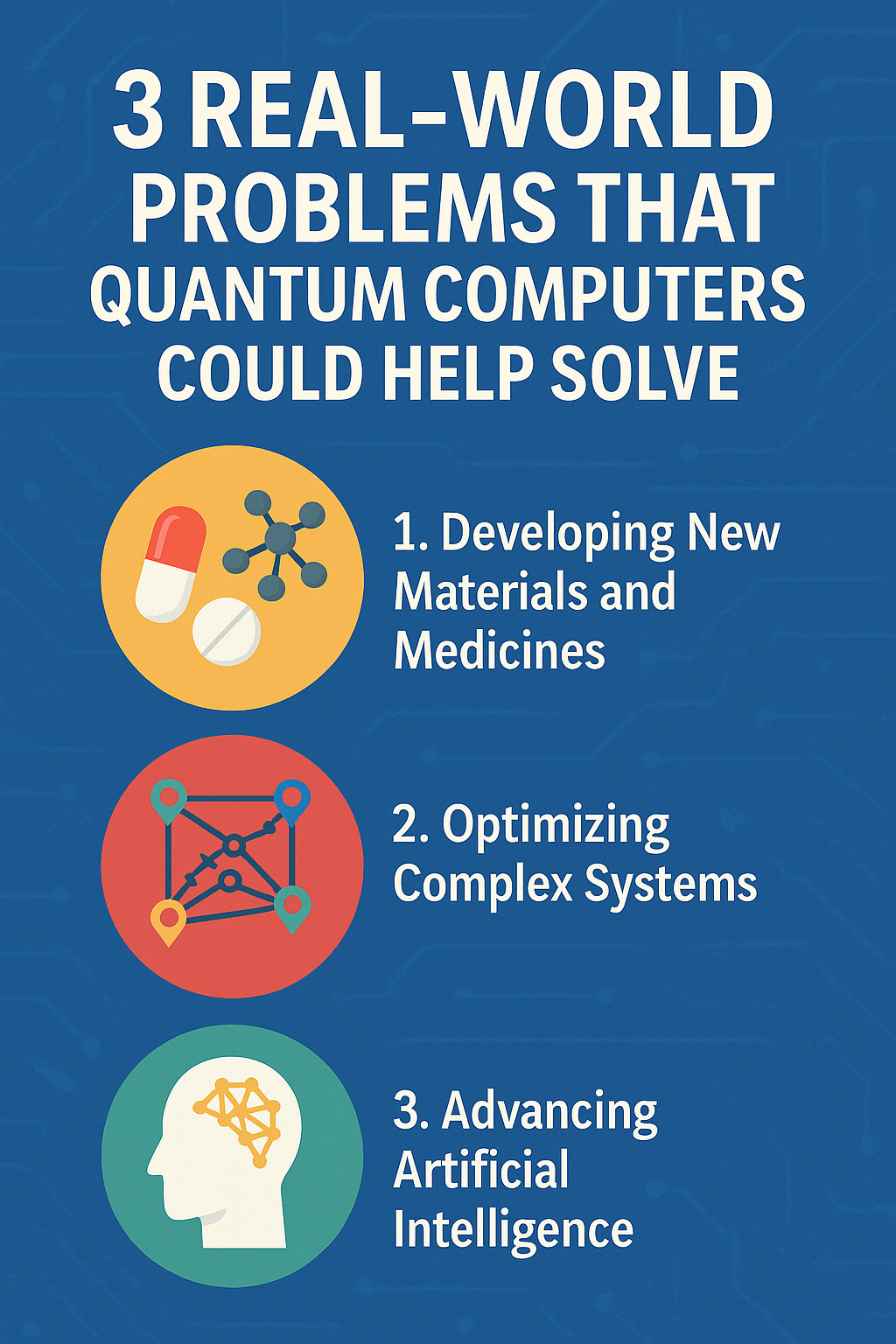Quantum computing, a field once relegated to the realm of science fiction, is rapidly approaching practical application. While still in its nascent stages, the potential of these powerful machines to revolutionize various industries is undeniable. For World Quantum Day, let’s explore three real-world problems that quantum computers could significantly impact in the future.
1. Developing New Materials and Medicines
Traditional computers struggle to simulate the complex interactions of molecules due to the sheer number of possibilities. This limitation hinders the development of novel materials with specific properties, like superconductivity at higher temperatures, and the discovery of new drugs. Quantum computers, leveraging the principles of superposition and entanglement, can efficiently model these complex molecular interactions. This ability could lead to the discovery of groundbreaking materials for various applications, from more efficient solar cells to lighter and stronger aircraft components. In the pharmaceutical industry, quantum simulations could accelerate drug discovery by accurately predicting the efficacy and side effects of potential medicines, significantly shortening the development timeline and reducing costs. Imagine a future where personalized medicines, tailored to an individual’s genetic makeup, become the norm, thanks to the power of quantum computation.
2. Optimizing Complex Systems
Many real-world problems involve optimizing complex systems with a vast number of variables. Logistics, traffic flow, financial modeling, and even supply chain management fall into this category. Classical computers often struggle to find optimal solutions in a reasonable timeframe, resorting to approximations. Quantum algorithms, such as quantum annealing and quantum approximate optimization algorithms (QAOA), are designed to tackle these complex optimization challenges. For instance, quantum computers could optimize traffic flow in real-time, reducing congestion and improving fuel efficiency. In the financial sector, they could optimize investment portfolios by considering a vast array of market factors and predicting risks more accurately. This ability to optimize complex systems has far-reaching implications, impacting industries from manufacturing and transportation to finance and energy.
3. Advancing Artificial Intelligence
The development of artificial intelligence (AI) has seen remarkable progress in recent years. However, current AI algorithms often require massive datasets and computational resources. Quantum machine learning algorithms have the potential to enhance AI capabilities in several ways. They can process and analyze data more efficiently, leading to faster training and improved accuracy. Furthermore, quantum computers could enable the development of entirely new AI algorithms that are impossible to implement on classical computers. This could lead to breakthroughs in areas like image recognition, natural language processing, and robotics. Imagine AI systems that can understand and respond to complex human language nuances or robots that can learn and adapt to new environments with unprecedented speed and efficiency.
Conclusion
While quantum computers are not yet ready for widespread deployment, the progress in the field is accelerating. The potential applications discussed above represent just a glimpse into the transformative power of this technology. As quantum computers continue to evolve, they are poised to revolutionize various industries, unlocking solutions to some of the world’s most challenging problems and ushering in a new era of scientific discovery and technological advancement. The future powered by quantum computing promises to be a fascinating and impactful one.

